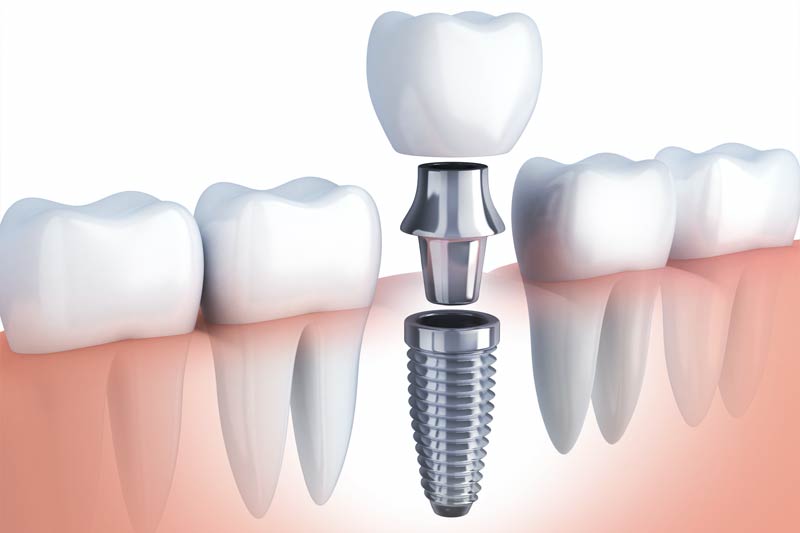Emergency Dentistry: Cracked Tooth
A cracked tooth can be caused by teeth grinding or biting hard foods, or it can occur naturally as you age. It has been classified as one of the major causes of tooth loss. A cracked tooth may be saved if the crack did not reach below the gum line.
Causes of a cracked tooth
- If you grind your teeth at night, the pressure from teeth grinding can cause a crack
- Very large fillings can also cause a crack
- Hard foods like nuts can cause a crack
- Hard blows from accidents are a potential cause of cracks
- Abrupt temperature changes such as a quick shift from cold and hot foods can cause a crack
- Sometimes teeth crack naturally, especially for people who are above 50 years of age
There are several types of cracks including
Craaze lines: These are very small cracks in the enamel. These may not be painful.
Fractured cusp: Usually occurs around a dental filling but doesn’t affect the pulp. It also doesn’t cause much pain.
Deep cracks: These extend into the gum line. If they are identified before
reaching the gum line, the tooth can be saved. If they are identified after reaching
the gum line, the tooth will need to be extracted.
Split tooth: It occurs when the crack extends below the gum line causing the tooth
to be segmented into two parts.
Vertical root fracture: It’s a type of crack that begins from below the gum line
and travels upwards.
Symptoms of a cracked tooth
A cracked tooth will cause
- Pain when chewing or biting
- Tooth sensitivity to hot or cold foods
- Pain that comes and goes even when the patient is not chewing
- Swelling of the gum around the tooth with a crack
Treatment for a cracked tooth
Treatment depends on the type of crack, the location of the cracked tooth, the symptoms experienced by the patient, and whether or not it extends to the gum line. Some common treatments include
Bonding: the crack is filled with plastic resin.
Crown: a dental crown is placed to cover the tooth.
Root canal: if the crack reaches the pulp, a root canal procedure is done.
Extraction: if the crack reaches below the gum line, tooth extraction is performed.
No treatment: if the crack is too minor, it may be left alone.
If a patient has fever, pain, and swollen gums from a cracked tooth, it is treated as a dental emergency. A patient receives immediate treatment and may be required to do follow-up appointments some weeks later in order to complete the treatment.




